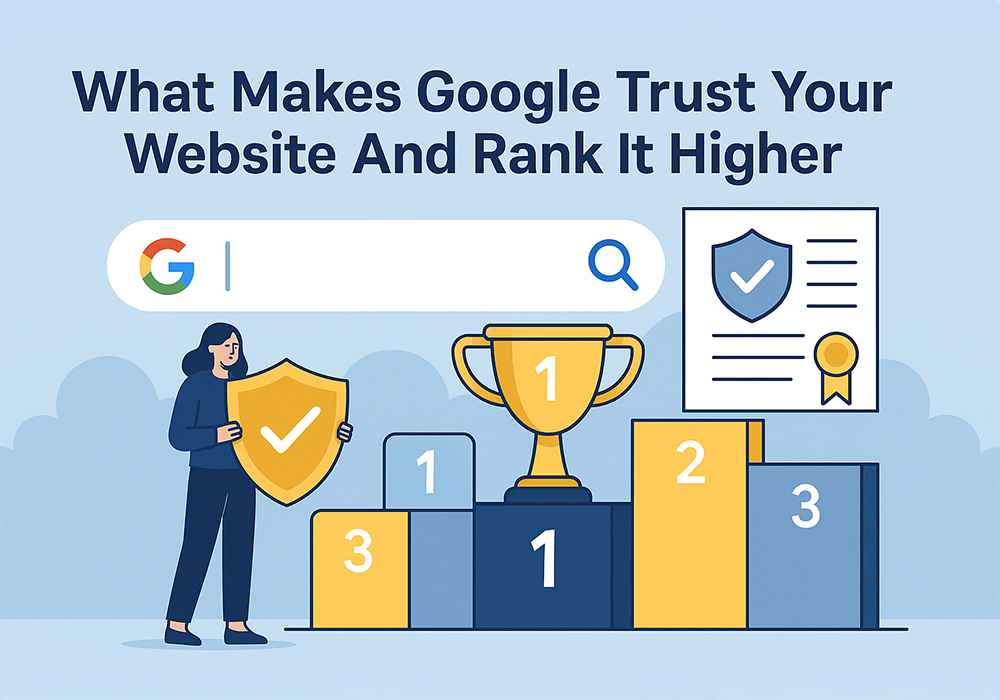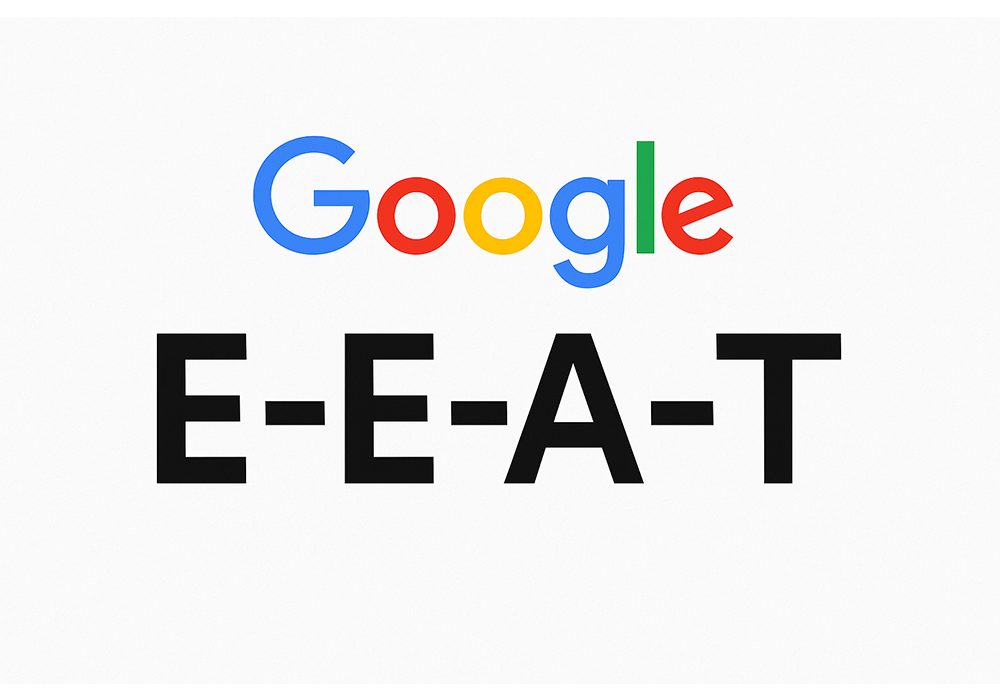What Makes Google Trust Your Website and Rank It Higher?

In the ever-evolving world of SEO, one thing remains constant: Google rewards websites it trusts. But how does Google decide which websites are trustworthy and deserve a higher rank? The key to the answer lies in understanding E-E-A-T (Experience, Expertise, Authoritativeness, and Trustworthiness) a concept that plays a central role in evaluating content quality.
Google introduced E-A-T as part of its Search Quality Evaluator Guidelines, and later updated it to E-E-A-T by adding Experience. E-E-A-T has a significant impact on how Google’s algorithms and quality assessors view your website, even though it is not a direct ranking factor. Let’s dive deeper into each element of E-E-A-T and understand how to optimize your site for better trust and higher rankings.
1. Experience: First-hand Knowledge Matters
Google wants content written by people who have real, first-hand experience with the topic. For example, a product review written by someone who has actually used the product will carry more weight than one written by someone who hasn’t.
How to show experience:
- Share personal stories, case studies, or hands-on reviews.
- Use photos or videos that prove your interaction with the subject.
- Include testimonials or user feedback if relevant.
This signals to Google that your content is not only original but also grounded in real-world experience, which builds trust.
2. Expertise: Show That You Know What You’re Talking About
Google prefers content written by subject matter experts. If you run a health blog, the articles should be written (or reviewed) by medical professionals. Expertise helps ensure the content is accurate, reliable, and useful to users.
How to improve expertise:
- Mention your qualifications or industry experience.
- Create detailed, well-researched content.
- Regularly update outdated information.
Expertise helps Google understand that your content is not just opinion—it’s backed by deep knowledge and insights.
3. Authoritativeness: Build a Strong Reputation
Authority is built over time. It’s about being recognized by others in your industry as a credible source. This can happen through backlinks from reputable websites, mentions on social media, or citations in online publications.
Ways to increase authoritativeness:
- Get backlinks from high-authority sites in your niche.
- Publish guest posts or get interviewed on known platforms.
- Urge pleased customers to post reviews on Google and other websites.
Google is more likely to rank you higher the more reputable your brand and website become online.
4. Trustworthiness: The Core of E-E-A-T
Trust is the most critical element of E-E-A-T. If your website doesn’t seem trustworthy, users (and Google) will avoid it. Trust issues can arise from poor site security, spammy content, or misleading claims.
Boost your trustworthiness by:
- Securing your site with HTTPS.
- Displaying clear contact information and privacy policies.
- Avoiding clickbait titles and misleading content.
Trust is also about transparency. Be honest about who you are, what your content aims to do, and how users can verify your claims.

Conclusion
Improving your E-E-A-T is not an overnight task. It takes time, consistency, and a genuine focus on delivering value to your audience. But once you start building it, Google will begin to recognize your website as a trusted source—and that can make all the difference in your rankings.
Want to improve your website’s trust and visibility with strong E-E-A-T strategies? Visit our SEO services and discover how we can help your site rank higher on Google.
E-E-A-T is more than just a rule in SEO these days. It is the cornerstone of trust, and trust is the key to success.